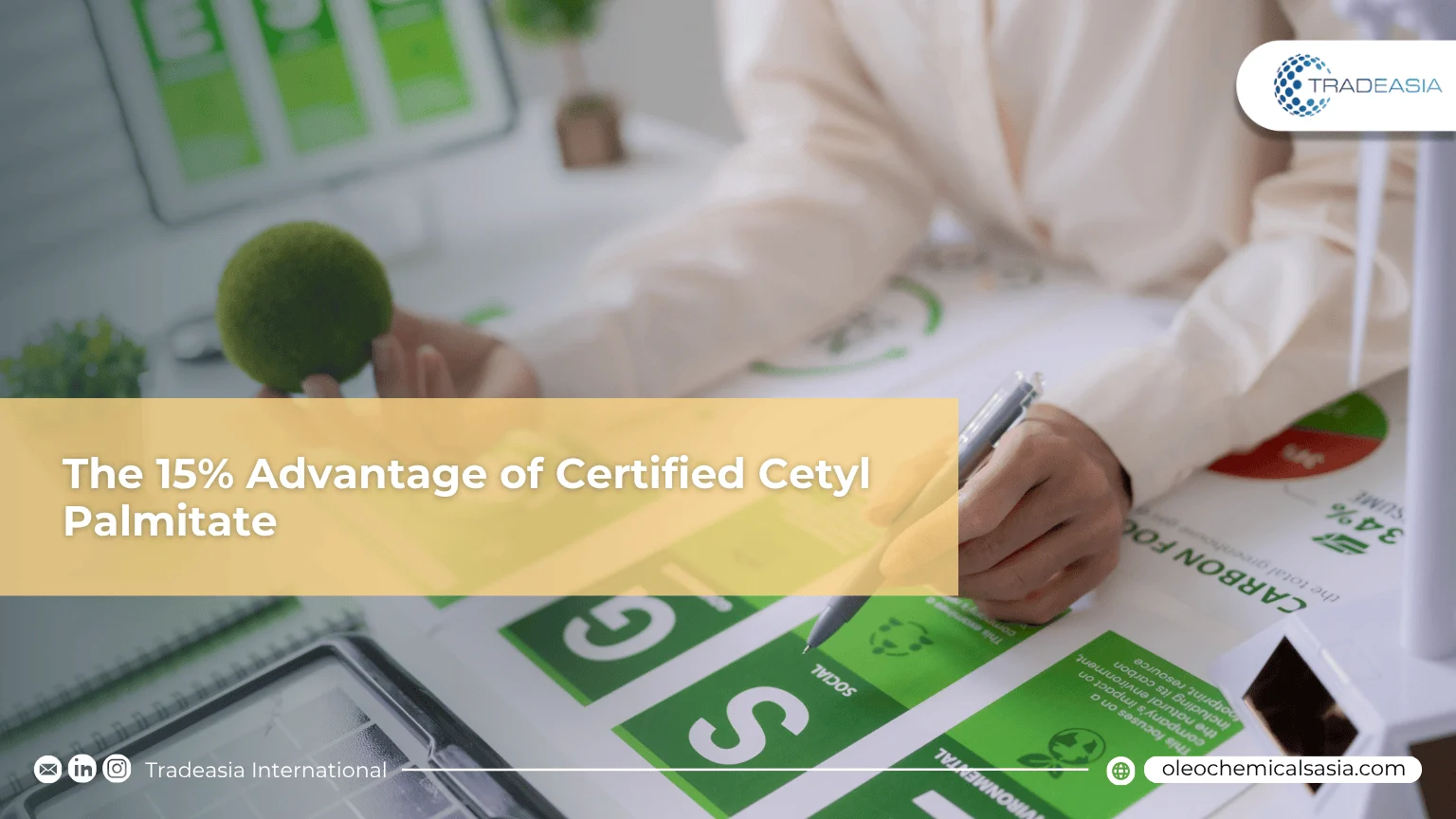The Cetyl Palmitate Premium: How a Certified Sustainable Supply Chain Can Unlock a 15% Market Advantage

Table of Content
- Beyond the Balance Sheet: The New Economics of Ethical Sourcing
- Turning Compliance into a Competitive Edge
In the dynamic global market of 2025, the conversation around sustainability has shifted from a corporate expense to a powerful revenue engine. For businesses in the cosmetics and personal care sectors, Cetyl Palmitate is a cornerstone ingredient. Its global market is not just surviving but thriving, valued at $245 million and projected to grow at a 5.5% CAGR to surpass $320 million by 2030. Capturing a share of this growth, however, now depends on more than just price and availability.
Navigating this lucrative landscape requires a new kind of strategic vision—one that aligns sourcing with market values. The complexity of the palm and oleochemical supply chain demands a partner who can provide clarity and access to certified materials. This is where sourcing experts like Tradeasia International become indispensable, building the bridge between global demand and verified, sustainable production.
Beyond the Balance Sheet: The New Economics of Ethical Sourcing
The most direct financial benefit comes from the tangible price premium that sustainable Cetyl Palmitate commands. In the highly regulated and eco-conscious markets of the European Union and North America, RSPO Mass Balance or Segregated certified products consistently fetch a premium of 10-15%. This isn't a theoretical number; it's a real-world advantage that directly enhances profit margins for manufacturers and suppliers. This premium reflects a core belief that, as a key player like Tradeasia International often emphasizes, true value in the oleochemical trade is built on a foundation of unwavering transparency. It's proof that ethical sourcing and financial success are now two sides of the same coin.
Turning Compliance into a Competitive Edge
Beyond premiums, a sustainable supply chain is a formidable tool for risk mitigation. Sourcing non-traceable Cetyl Palmitate is now a direct financial liability, with regulations like the EU Deforestation Regulation (EUDR) carrying potential fines of up to 4% of a company's total annual turnover. This risk is being closely watched by the investment community, where ESG-compliant companies with transparent supply chains see their valuations climb by an average of 5-7%. Ultimately, embracing a certified sustainable sourcing strategy is no longer a choice but a critical business imperative for securing market access, investor confidence, and long-term profitability.
Sources:
-
Palm-Chemicals.com: Cetyl Palmitate Product Grades and Specifications
-
IMARC Group: Cetyl Palmitate Market: Global Industry Trends, Share, Size, Growth, and Forecast 2025-2030
-
RSPO: 2024 Impact Report on Shared Responsibility and Market Transformation

Leave a Comment